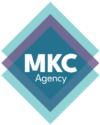One of the best ways to connect with your ideal clients is by using industry jargon they will recognize. The easiest way to build trust with them is to prove that you understand their industry and that you can speak their language. Not only that but using industry jargon to show that you know what you’re talking about can be beneficial when it comes to conversion and sales as well because it shows off your authority and expertise in the field. Here are seven reasons why you should be using industry jargon as much as possible.
1) Show Businesses That You Understand Their World
By throwing around industry lingo, you’re demonstrating to businesses that you understand their world. Many of your prospects are likely people who have extensive knowledge of computer technology, hardware, software, or other types of products. While they may know more about these topics than you do, it never hurts to show them that you’re willing to learn and that what they do is important and special. By using industry jargon (and even acronyms), you’re showing your prospects that you respect them and what they do for a living by getting down in the trenches with them and learning their language. It’s a sure-fire way to build rapport. And when you’re trying to close a sale, there’s no better feeling than putting your prospect at ease.
Lingo Creates In Group Mentality: In his book The Art of Community, Jono Bacon explains that an important part of community building is creating groups within communities. There will always be individuals in any community who feel separate from others — including members of online communities — but trying to use familiar terms can help users feel like part of a team. If users see value in joining a group — whatever form it takes — they’ll be much more open to purchasing from someone within that group. That’s why being able to throw out jargon creates not only credibility but also encourages sales.
Think of it this way, when you read a novel, and you have to keep looking up the terms the writer uses, it makes the book less fun to read. You don’t feel like the author *gets* you. Business writing is the same. Your prospects will naturally feel understood when you speak the way they do.
2) Use Plain Language to Connect
Look at it from your client’s perspective. When you’re trying to build a rapport with someone, or simply make your pitch, wouldn’t you want them to use language that makes you feel comfortable? That’s what your clients want as well. If you’re pitching a product or service, one of your primary objectives is to make sure that people are able to understand what you’re offering and why they should care. Use industry jargon only when absolutely necessary – plain language builds trust much faster than any convoluted term will. If a regular person can’t understand what you’re talking about, neither can your customers. Plain language matters in business because it creates an emotional connection between two people. Plain language allows for conversations to flow more naturally between two parties without being bogged down by confusing lingo or ideas that sound smart but aren’t necessarily useful. In short: be relatable! Clients won’t do business with anyone they don’t immediately get along with, so focus on making interactions comfortable and smooth.
3) Create Relevant Chats Around Keywords
The internet is teeming with conversations. A quick search on Google can bring up hundreds of results for any given keyword (especially if it’s hot). The trick is to find an active conversation that has room for you to be a part of it. Identify relevant keywords and get involved. Comment, respond, tweet your unique take on the subject—but make sure it’s something you can add value to before jumping in. If you’re not careful, you can easily be drowned out by those who have been there longer than you. We suggest creating a keyword directory that tracks which keywords come up over time and serves as a hub for where conversations are taking place online. Then start adding those conversations to your daily news feed using social media scheduling tools like Hootsuite or BufferApp, which allow you to post to Twitter, Facebook, and LinkedIn from one platform without having to log in to each individual account every day.
4) Improve SEO Rankings
When trying to optimize your website, it’s important to try and incorporate as much industry jargon as possible. This way you can be sure that your content will rank highly in Google searches, as well as inspire confidence in potential customers that you really do understand their problems. For example, if you sell motion-detecting lights for people who are afraid of home invasions, don’t just call them motion-detecting lights—call them intrusion-detection systems. People searching for terms like that are likely looking for something more specific than just regular motion-detecting lights.
5) Increase Conversion Rates
One of B2B technology’s key selling points is its ability to increase conversion rates for your business. However, that efficiency only goes so far if you aren’t using industry jargon to connect with potential customers. A 2013 study showed that website visitors are more likely to make a purchase after reading industry-specific jargon on a B2B company’s website. When you use words like integrated, portfolio, and architecture in your marketing, your readers feel like they’re not just getting an education about your product but also learning something new and valuable about their own workday.
6) Create Thought Leadership Status
Becoming a thought leader is one of your best chances to position yourself as an expert in your industry. Thought leaders are individuals whose content is so valuable that they become the go-to source for information on their topics of expertise. Therefore, if you develop thought leadership status, people will want to use you for insight because you are seen as an authority in your field. Creating thought leadership status can be achieved by creating an outstanding body of work online and building connections with other industry experts. Both approaches help build trust and credibility, which lead to increased referrals and more business opportunities. If you’re interested in positioning yourself as a tech company expert, start building your brand through blogging.
7) Keep Clients Interested in What You Have To Say
If you speak and write like a human instead of a piece of technology, you’ll keep your clients interested in what you have to say. Even if they don’t fully understand everything you say at first, they will remember your work better if it feels more natural. They are also more likely to share your work with others, which means word-of-mouth is more likely for you. So go ahead, stop using jargon! Let’s make communication fun again. With fewer confusing words we can build relationships faster with our audience and increase trust and mutual respect between us all (including our customers). Let’s communicate like humans, not like robots 🙂

